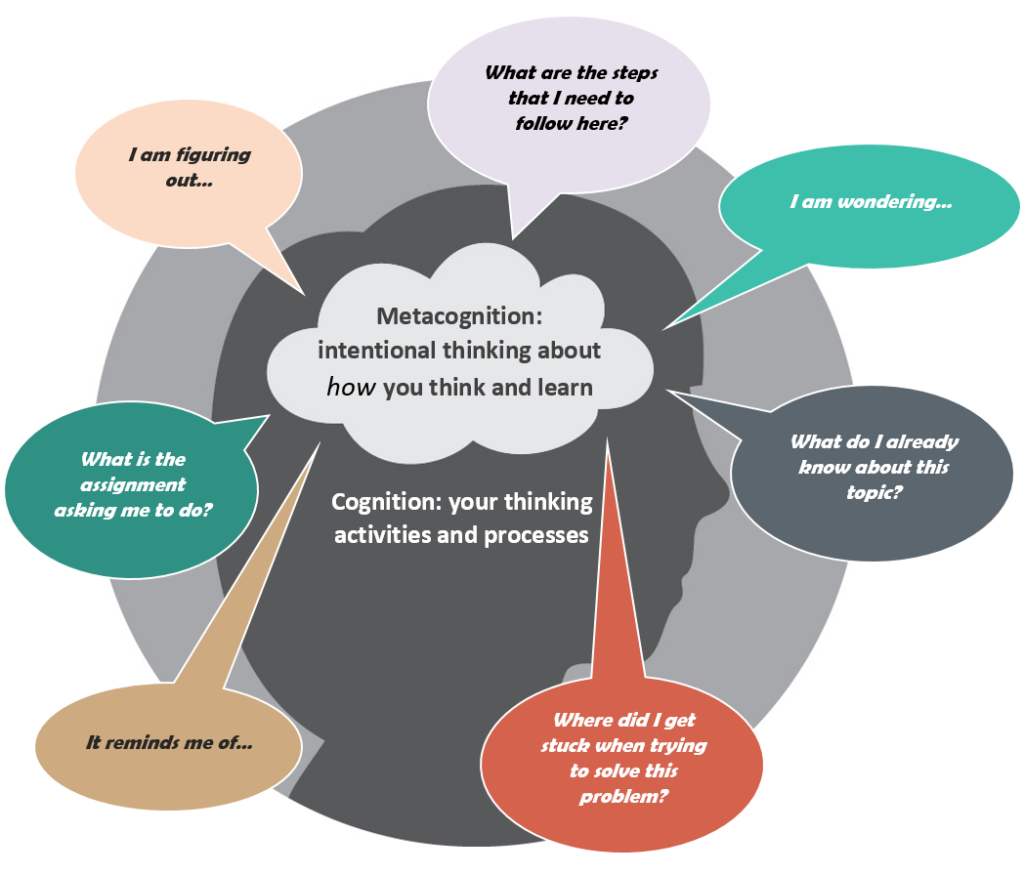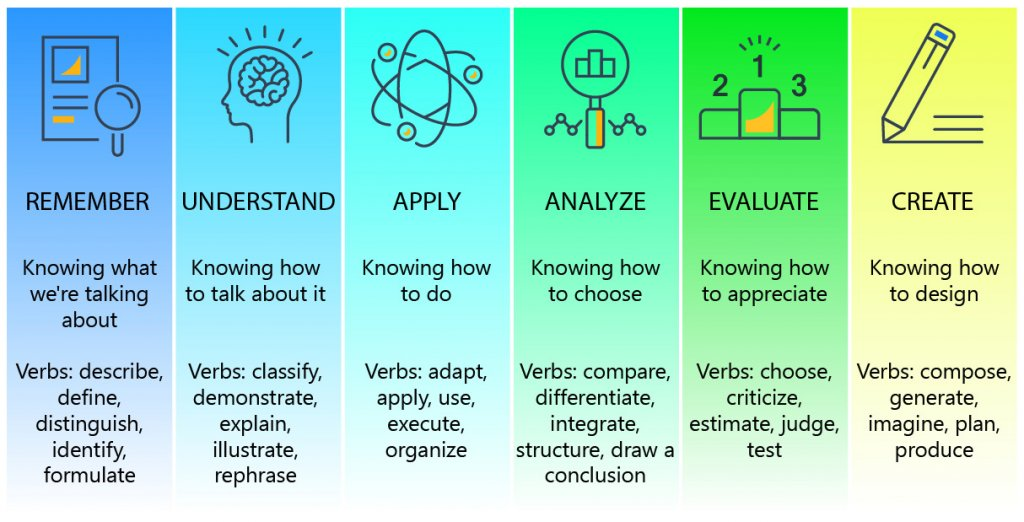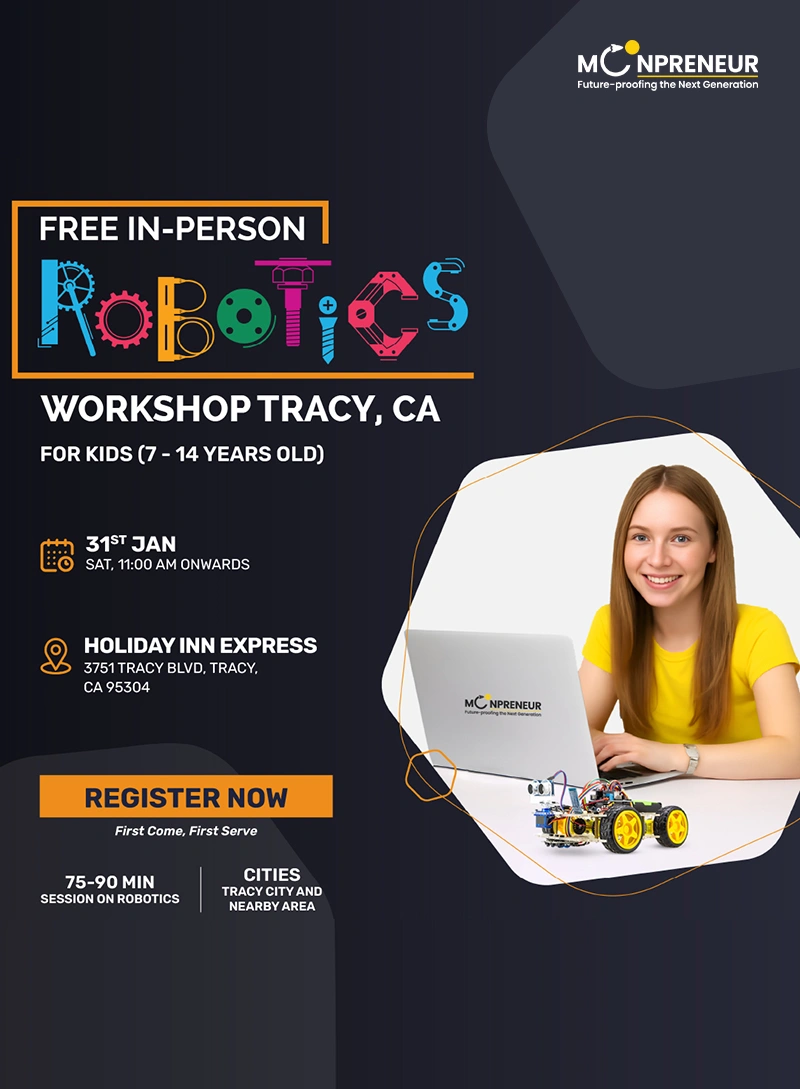
Update: This article was last updated on 21st April 2025 to reflect the accuracy and up-to-date information on the page.
Is it often difficult to understand your anxieties during adverse situations?
Do you often struggle to stay on task?
Do you think you’re “bad” at mathematics?
Metacognition can provide you with the answers to most of the questions that often go unanswered.
Metacognition is the process of thinking about one’s thinking and learning, according to an article at Queen’s University. It focuses on self-monitoring and correcting one’s learning processes.
First coined in the 1970s by John Flavell, Metacognition is simply “thinking about thinking” – something that we unconsciously do daily but aren’t really aware of it. However, being self-aware and taking full accountability for your actions, reactions, and outcomes is something you can achieve only by consciously understanding your thoughts and learnings.
To understand the concept better, let’s do a small exercise.
Do you “hate” maths?
Next time when you find yourself feeling discouraged or disinterested in math, pause and reflect to understand when exactly you started to feel that way.
👉Was it a particular topic or concept you found confusing or challenging?
👉Maybe you didn’t like the math teacher?
👉Or did scoring low grades make you feel bad enough to think that math is not your cup of tea?
By reflecting on these questions, you can become more aware of your thinking processes and the factors influencing your feelings about math.
Recommended Reading: TOP 5 ADORABLE AND AFFORDABLE GIFTS FOR STUDENTS

Types of Metacognition
Metacognitive Knowledge
Metacognitive knowledge is the knowledge that a person has about their own thinking processes. It consists of knowledge of one‘s strengths and weaknesses, knowledge of various learning strategies, and knowledge of when and how to apply them.
Metacognitive Regulation
Metacognitive control means that an individual can observe and regulate his/her thinking process. This encompasses planning, monitoring, and reviewing learning and problem-solving activities. Metacognitive control also means to modify one‘s thinking approach if not working successfully.
Development of Metacognitive Skills: Strategies
1. Set goals
In order to become improved learners, you should define your learning activities clearly. Ensure that your goals are measurable and specific so that you can monitor your progress. Set your goals in order of priority by determining which ones are most urgent or significant, and address them first.
Don‘t forget to reward yourself for your achievements along the way!
By setting achievable goals and working towards them, you’ll learn about your thinking processes and become a more effective learner.
2. Self-monitoring
Completing a task requires self-monitoring at various levels. Ask yourself questions like “Do I understand the concepts?” or “Do I need to read that paragraph again?”
Honesty with yourself and your self is necessary in order to realize the ultimate aims. Knowing yourself better about the learning capacity and making the appropriate adjustments in approach will make you a master in the topic on which you are determined to excel. And at the same time, don’t forget, making mistakes and grapping new things is okay and in due course of time with persistent efforts you will be more confident and proficient learner.
3. Reflection
Most individuals breathe a sigh of relief upon finishing work. However, the Meta-cognitive method instructs you to analyze your work after you have attained your objective. Give yourself time to consider what you did correctly and what you need to work on. This will assist you in determining where you can develop.
Don‘t hesitate to ask yourself hard questions, such as “What could I have done differently to achieve a better outcome?” or “What did I struggle with, and how can I do better next time?”
With reflection, you‘ll also learn to view failures as chances to learn and grow. This ultimately releases you from the fear of failure and guarantees success in the long term.
Use various strategies
Not all kids are made the same. Some might enjoy an open-ended learning approach, while others might need to start with a “non-blaming” strategy to get past their pre-conditioning. Try out different Metacognitive strategies for learning, evaluate the outcomes, and determine which one works best for you.
Recommended Reading: 5 KID-FRIENDLY ACTIVITIES AROUND BAY AREA SILICON VALLEY
Some of the most common strategies are:
Open-ended strategy: Rather than seeking one “right“ solution, attempt to examine various possibilities and viewpoints in order to find the correct path for your objectives.
Non-blaming strategy: When circumstances fail to work out as expected, do not blame yourself or others. Instead, work on adopting a growth mindset and progressing.
Solution-focused approach: Instead of dwelling on issues concentrate on finding solutions. This can assist you in acquiring problem-solving skills and feeling more in charge of your learning.
Process-oriented approach: It is the worst approach to focus only on the result of a task. Instead, notice how you approached it. This can assist you in recognizing what went well and what didn‘t and gaining a better insight into your learning processes.
Practical Metacognition Strategies for Smarter Learning
To integrate metacognition into learning naturally, use these metacognition techniques that aid in analyzing, correcting, and refining thought patterns.
1. Teach with Analogies
Conceptualize metacognition as debugging in computer programming. Similarly, as coders thoroughly verify their code to detect bugs, you can verify your thought process while learning a new concept. For instance, if a mathematics problem is puzzling, stop and examine:
- Did I misinterpret the principle?
- Can someone divide the problem into smaller sections?
- What approach should I follow to solve it?
This metacognition technique makes you realize how you think, and it becomes easy to solve problems.
2. Employ Visualization Strategies
Visualization has the ability to make abstract thinking more concrete. These techniques can be used:
- Mind Maps: Develop a diagram that links main ideas while studying a new subject.
- Flowcharts: Follow your thought process step by step while solving a problem.
- Concept Charts: Try out various strategies and determine the best method.
Through conscious application of metacognition techniques, you will cultivate an organized thought process, which will streamline learning.
Do you want to check your metacognitive ability? Give this short exercise a try:
👉 Select a challenging topic. Jot down how you typically tackle it.
👉 Now apply a different metacognition technique (such as mind mapping or questioning methods).
👉Compare the outcomes—did you discover a better approach to learning the subject?

Source: Knowledge One
Are metacognitive skills innate, or can they be learned? The best news is that anyone can become metacognitively skilled with practice.
First of all, Metacognitive skills are essential for a lifetime of learning and can make you successful in academic, personal, and professional life.
Some of the major metacognitive skills that you have to practice are as follows:
Self-awareness: You should be able to identify your strengths and weaknesses.
Prioritization: You have to be able to plan strategies, set goals, and organize information. Prioritize your tasks efficiently to accomplish more in fewer minutes.
Monitoring: This skill asks you to monitor your thinking processes and modify your strategies whenever needed.
Evaluation: Evaluation as a skill involves building problem-solving skill based on performance..
Self-reflection: Reflection is the core of all Metacognitive exercises. In the absence of reflection, you might not be able to find areas that can hamper growth and development
Become a Better Learner Now..
Isn’t that what practicing metacognitive paradox is all about? You can become a better learner by knowing your thought processes, rating them, and reflecting over them from time to time.
These small yet significant actions, when done regularly, can make a great deal of difference in your life. Of course, parents and educators can help you master the process – but eventually, it’s you whose dedication and determination will be paramount in incurring success – both personal and academic life.
Moonpreneur is committed to revolutionizing traditional education, equipping the future generation with immersive learning experiences. Our Innovator Program provides students with essential skills in AI/ML, Robotics, Coding, Game Development, and App Development, enabling entrepreneurship through experiential learning. The program focuses on developing the workforce of the future by incorporating innovative technologies and hands-on skills in school curriculums.
Join a 60-minute free workshop today!


























Does metacognition improve with age?
Metacognition tends to improve with age due to accumulated experiences, formal education, ongoing brain development, social interaction, and increased self-awareness. While not solely dependent on age, older individuals often exhibit enhanced abilities to reflect on and regulate their own thinking processes compared to younger counterparts